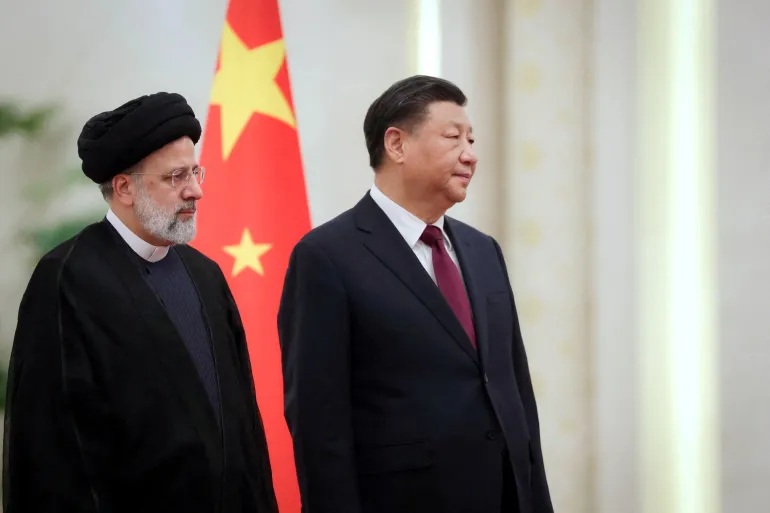Chinese leader Xi Jinping hosted his Iranian Counterpart President Ibrahim Raisi during his two-day official visit to Beijing, amid heightened political unrest at home and souring multidimensional tension with the West. According to the details, Xi and Raisi attended the signing of 20 agreements and MoUs to boost bilateral trade and cooperation between their nations. As said, President Xi expressed Beijing’s support for Raisi’s government and criticized Washington’s dominance over global affairs. Chinese Strongman also condemned the external interference in Iran’s domestic affairs and vowed to continue China’s backing to Tehran in safeguarding national sovereignty and resisting unilateralism and bullying in the face of heightened unrest in its Country. Both leaders reaffirmed working together on issues involving each other’s core interests in the region and beyond.
The Islamic Republic of Iran had been a major victim of western diplomatic and economic coercion over the past three decades because of Tehran’s alleged involvement in the nuclear proliferation domain and the production of highly enriched Uranium which forms the most crucial part of a nuclear weapon. Tehran always denied those charges and claimed its right to peaceful use of nuclear energy to comprehend its energy and development goals, however western nations particularly Iran’s staunch rival Israel did not let no stone unturned to defame, disrupt and destroy Iran’s nuclear ambitions. Thus, Iran has long been embattled with the worst effects of trade and financial sanctions imposed by the United States and western governments along with a permanent blockage of access to the global banking network since 2018.
Historically, a convergence of interest, as well as the sameness of foes has brought most of the Washington rivals to one table and forged a wide-ranging consensus between China, Russia, Cuba, Venezuela, North Korea, and Iran. All those nations face western economic and trade sanctions and are in an effort to reduce the effect of western embargo through mutual cooperation and trade. Currently, Iran is chasing a 25-year strategy agreement with China to cooperate in developing oil, industry, trade, IT, and security cooperation. At the same time, Tehran has a historic relationship with Moscow and currently, both nations are working to strike a 25-year strategic deal to boost their energy cooperation, defense, and secuirty cooperation along with the construction of an international North-South Transit Corridor (INSTC), that will connect the Eurasian economies with Iran and Central Asia through road and rail links in the future. There had been a tremendous uproar agaisnt the use of Iranian armed military drones by the Russian troops in the war in Ukraine, prompting a fresh wave of hostility in the west.
Over the past two decades, a unipolar world largely remained unstable and faced multiple challenges including a controversial war on terrorism (WoT), unilateral invasion against Iraq and Afghanistan along with the rise of the so-called Arab Spring that shattered the peace in the entire Middle East and North African (MENA) region. In fact, weak nations had always suffered blackmail from powerful countries however the absence of alternatives makes them helpless and vulnerable. The ongoing US-Russia rivalry and Washington’s strategic competition with Beijing have paved the way for a bipolar world, that is likely to resist the belligerence of aggressors and will create balance in the universe.







